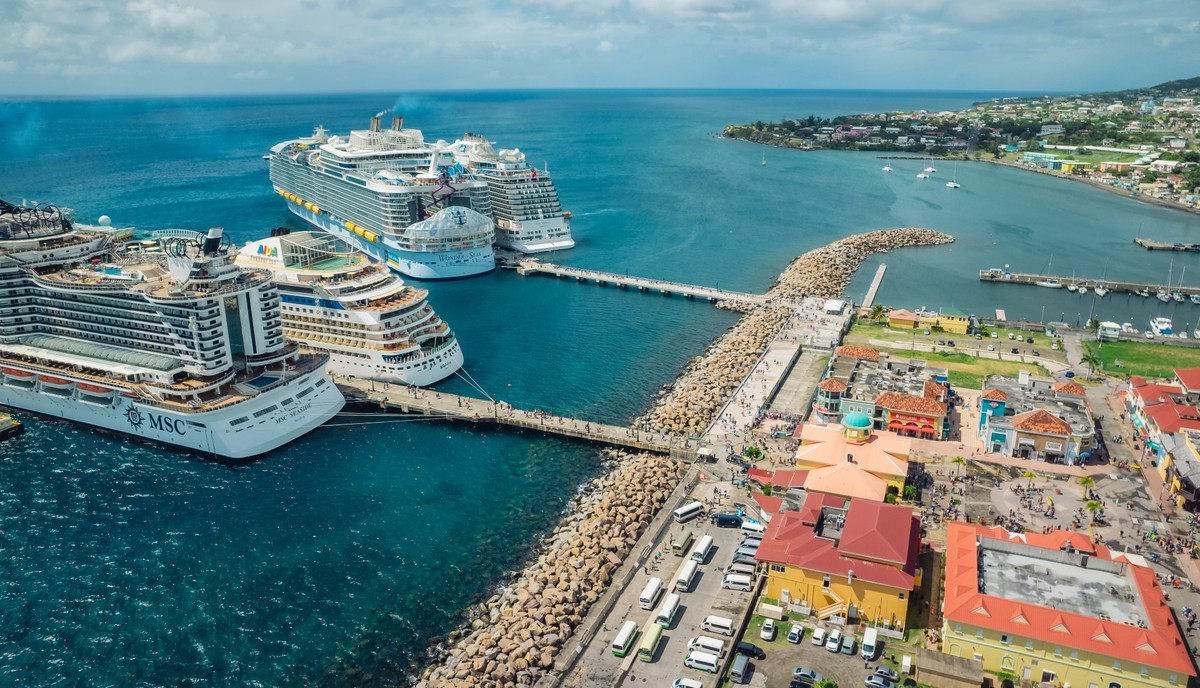MEPC 82: Caribbean nations seek CII corrections for short voyages
The IMO must review the current carbon intensity indicator (CII) metric to include a correction factor for short shipping routes and unforeseen delays at ports, Caribbean nations propose.
 PHOTO: Port Zante, a cruise port in St. Kitts. Port Zante Authority
PHOTO: Port Zante, a cruise port in St. Kitts. Port Zante Authority
The implementation of the CII has raised “operational concerns” for ships operating in the Caribbean region, the island nations said in a proposal to the IMO's Marine Environment Protection Committee (MEPC).
The International Maritime Organization's (IMO) CII regulation, implemented last year, measures how efficiently a ship transports goods or passengers. The CII is expressed in grams of carbon dioxide (CO2) emitted per metric ton of cargo per nautical mile. Ships are rated annually from A to E, with A being the highest. The rating criteria will become stricter by 2030.
A joint proposal submitted by the Caribbean island nations Antigua and Barbuda, Jamaica, Saint Kitts and Nevis, Saint Vincent and the Grenadines and Trinidad and Tobago urged the IMO to review the current CII metric to include a correction factor for shorter routes and unforeseen delays at ports.
The CII’s correction factor allows some ships to adjust their CII calculations in certain situations, either by excluding certain periods of operation or by reducing the CII value based on specific criteria, according to classification society DNV.
Ships operating between Caribbean islands and serving smaller ports without modern infrastructure often spend a significant amount of time on non-transport activities. This can increase fuel consumption and emissions while docked, even if the vessel is not carrying any cargo, and negatively impact the ship’s CII rating, the proposal argued.
According to the proposal, this could lead ships to avoid Caribbean routes and cause economic damage to the region.
The countries also urged the IMO to support measures to improve ship's energy efficiency in Caribbean ports and to back infrastructure upgrades for more energy-efficient operations.
CII faces scrutiny for flawed metrics
This is not the first time the CII has faced criticism from the shipping sector.
A study by the Royal Belgian Shipowners' Association and the University of Antwerp found that the current CII formula favours ships that sail longer distances, “potentially rewarding higher fuel consumption.” The study highlighted that factors such as waiting time, the number of ports of call and distance travelled adversely impact CII ratings. Even when some of them are beyond a ship’s control. Neither does the formula account for unexpected delays in ports due to congestion, inefficiencies or other logistical challenges.
A similar argument was presented by BIMCO and other shipping organisations in their proposal to the IMO's upcoming Marine Environment Protection Committee (MEPC). They noted that the current CII metric penalises efficiently operated ships carrying cargo and favours empty vessels. It also highlights that ships are penalised for prolonged stays in ports, even when the duration of port calls is beyond their control.
By Konica Bhatt
Please get in touch with comments or additional info to news@engine.online





